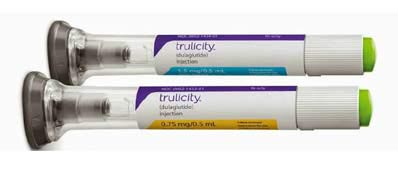FDA approves MACE label claim for Lilly’s Trulicity

Eli Lilly has firmed up the label for its type 2 diabetes therapy Trulicity with FDA approval for a new cardiovascular risk reduction claim, as it faces increased competition from Novo Nordisk.
The US regulator has approved once-weekly injectable Trulicity (dulaglutide) for the reduction of major adverse cardiovascular events (MACE) in adult diabetics who have established heart disease or multiple risk factors.
According to Lilly, the green light – based on data from the REWIND trial – makes Trulicity the only medicine approved in the US for both primary and secondary prevention of MACE in type 2 diabetes. The data is also under review by EU regulators.
REWIND was reported at the American Diabetes Association meeting last year and found a significant reduction in MACE compared to placebo, cutting the five-year rate from 2.7% to 2.4%. There was no difference between the groups on overall mortality rates.
The big question for Lilly is whether the data are strong enough to fend off the challenge from Novo Nordisk’s once-weekly GLP-1 agonist Ozempic (semaglutide), and its recently approved once-daily oral version of the drug Rybelsus.
Ozempic has its own positive cardiovascular outcomes trial in hand – called SUSTAIN 6 – which included type 2 diabetics with established cardiovascular disease or kidney disease as well as earlier-stage patients without those complications.
It found that the drug reduced the rate of cardiovascular death, nonfatal myocardial infarction, or nonfatal stroke to 6.6% versus 8.9% with placebo, but was however only deemed non-inferior to control, with similar cardiovascular death rates between the groups. Novo Nordisk nonetheless was able to secure a MACE risk reduction label in the US earlier this year.
Rybelsus was also unable to show superiority to placebo in the smaller PIONEER 6 trial, but the FDA updated its labelling in January to include the safety data from the trial. Last year Novo Nordisk started the placebo-controlled SOUL trial in 9,642 adults with type 2 diabetes and established cardiovascular disease to further evaluate the cardiovascular effect of Rybelsus.
The Danish drugmaker’s once-daily injectable GLP-1 drug Victoza (liraglutide) was able to beat placebo in the LEADER trial, but sales are declining as patients switch to the GLP-1 drugs that require fewer injections.
Trulicity is still the market leader with sales of $4.13 billion last year, a rise of 29%, but Ozempic has been gaining ground. Novo Nordisk’s drug grew 142% in 2019 to $1.6 billion.
While Rybelsus’ approval came too late in the year to record much in the way of sales, it has been tipped by GlobalData to become a $3.2 billion product in 2034 – perhaps rising to $7.2 billion at peak – thanks to the convenience of taking a once-daily pill.













